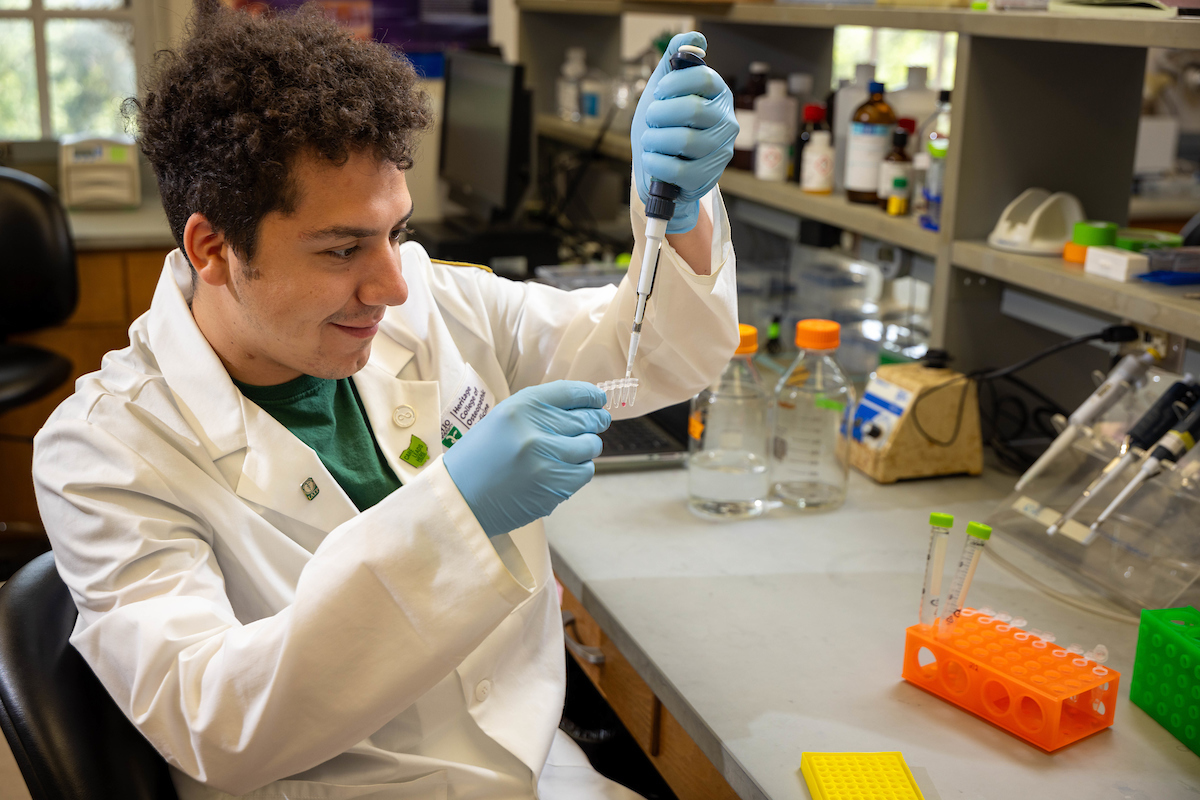Ohio University’s Heritage College of Osteopathic Medicine has solidified its reputation as a leader in medical research by earning the number one spot in National Institutes of Health (NIH) funding among osteopathic schools for fiscal year 2024.
OHIO's Chief Medical Officer and Executive Dean of the Heritage College of Osteopathic Medicine Ken Johnson noted that this achievement underscores the college’s dedication to cutting-edge research and collaboration with leading health institutions, including NIH, whose continued support and funding are helping to address some of today’s most pressing health challenges.
“NIH investment validates the incredible promise of biomedical research taking place at the Ohio University Heritage College of Osteopathic Medicine. With the support of the National Institutes of Health and other partners, our research teams have been steadily advancing clinical treatments for some of the world’s most prevalent medical challenges, such as diabetes and the impacts of aging,” Johnson said. “An investment in biomedical research at the Heritage College is an investment in the health of the citizens of Ohio.”

A draft rendering of the new Heritage Translational Research Center (HTRC). Construction on the HTRC is slated to begin in early 2025. The facility will be located on OHIO’s Union Green adjacent to HCOM’s main classroom building on its Athens campus.
A new home for medical research
Bolstered in part by an $8 million federal grant from NIH to fund a portion of the new Heritage Translational Research Center (HTRC), OHIO researchers received $11,574,536 in awards.
The new center will consolidate research locations and promote collaboration between basic and clinical scientists to bolster translational research. It will also serve as a primary home to the Diabetes Institute (opens in a new window) and the Ohio Musculoskeletal and Neurological Institute (opens in a new window).
"The generous support of the Osteopathic Heritage Foundation has been a catalyst, transforming research at the Heritage College by helping us increase our capacity, build and expand our research teams, boost opportunities for student research and attract outside funding from organizations like the National Institutes of Health," said Darlene Berryman, professor and associate dean within the Heritage College. "It’s impossible to overstate how pivotal OHF’s support has been in paving the way for us to develop a nationally prominent research program and become more competitive for federal funding. Although we received more NIH funding than any other college of osteopathic medicine in the nation the last fiscal year, always, at the heart of what we do, is a desire to improve the health and wellbeing of the people of Ohio and beyond."
An investment in biomedical research at the Heritage College is an investment in the health of the citizens of Ohio.
Examining skeletal muscle performance and metabolism
The NIH recently awarded Heritage College researchers a grant for over $2.4 million. This R01 grant will fuel groundbreaking research aimed at unraveling the processes influencing skeletal muscle performance and metabolism.
The project is led by Vishwajeet Puri, Ph.D., Osteopathic Heritage Foundation Ralph S. Licklider, D.O. Endowed Professor in Diabetes, alongside co-investigators Leslie Consitt, Ph.D., OHF Ralph S. Licklider, D.O., Endowed Faculty Fellow in Enhanced Metabolic Aging; Kevin Lee, Ph.D., associate professor of biomedical science; and Cory Baumann, Ph.D., assistant professor of biomedical sciences.
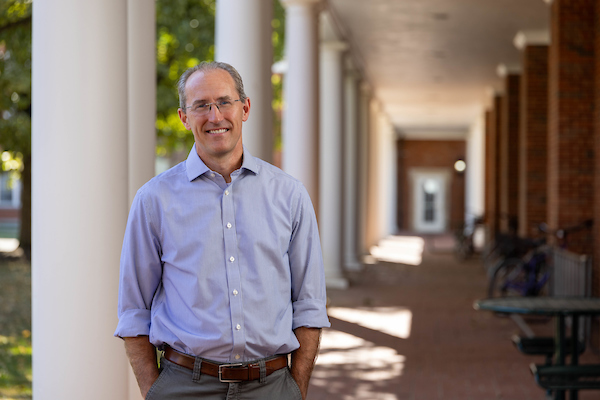
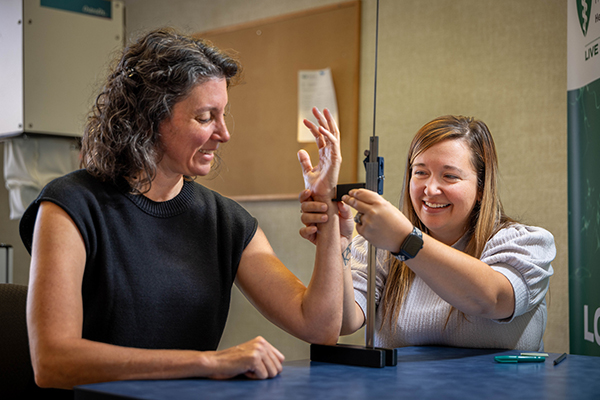
Creating independence as we age through neurological research
The loss of muscle mass has often been used to explain why aging adults often experience muscle weakness that limits their mobility and can make it more difficult for them to complete tasks that affect their independence. Less is known about how neurological factors play a role in physical strength as we age. This is the focus of $1.2 million awarded to Brian Clark, Ph.D., by the NIH for two studies in 2024. Clark, his team and collaborators hope to better understand the mechanisms of motor neurons and other neural factors in age-related weakness. The researchers will also explore treatment strategies that could enhance strength and function in older adults. The two multi-year studies include “Neural mechanisms of age-related weakness,” a five-year project with total funding of $3.1 million and “Motoneuronal mechanisms underlying age-related muscle weakness,” a five-year study with total funding of more than $4 million.
Janet Simon, Ph.D., associate dean for research, and Dustin Grooms, Ph.D., professor, with the College of Health Sciences and Professions, and Leatha Clark, D.P.T., research assistant professor at the Heritage College, are co-investigators on the neural mechanism study. Brian Clark is a professor in the Heritage College; Osteopathic Heritage Foundation Harold E. Clybourne, D.O., Endowed Research Chair; and executive director of the Ohio Musculoskeletal and Neurological Institute.
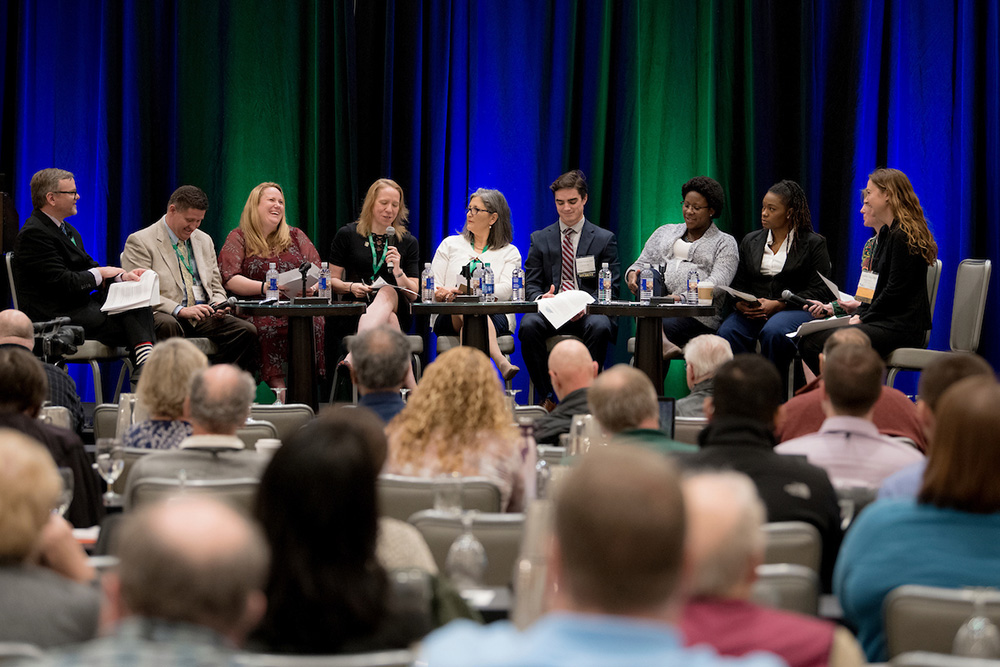
Fighting opioid stigma and increasing access to transitional assistance
The NIH awarded more than $400,000 to Berkeley Franz, Ph.D., and her collaborators for two studies related to opioid use in 2024. In one of the projects, a three-year study with total funding of more than $700,000, researchers are interviewing hospital decision makers and community partners at five hospitals and convening a panel of experts to develop strategies to increase the availability of transitional opioid programs in underserved communities. Cory Cronin, Ph.D., associate professor with the College of Health Sciences and Professions (CHSP), is a co-principal investigator. The second study is testing an intervention designed to reduce rural health professionals’ stigma toward individuals who are addicted to opioids. The hope is that providers will more frequently prescribe buprenorphine, a medication that has been used to treat opioid use disorder.
This is a three-year study with total funding of nearly $700,000 and includes co-investigators Janet Simon, Ph.D., associate dean for research at CHSP, and Lindsay Dhanani, an assistant professor at Rutgers University. Franz is a professor with the Heritage College; Osteopathic Heritage Foundation Ralph S. Licklider, DO, Endowed Faculty Fellow in Behavioral Health; and co-director of the Institute to Advance Health Equity.
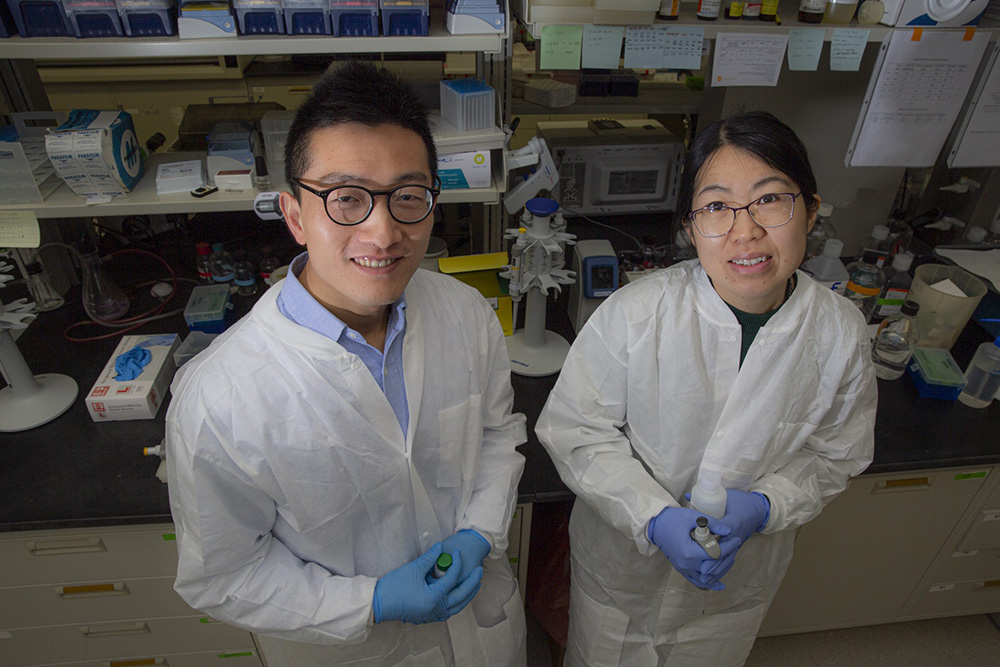
Easing the pain of osteoarthritis
Most older adults have signs of osteoarthritis in their joints, which can affect mobility and quality of life. Shouan Zhu, Ph.D., associate professor, Osteopathic Heritage Foundation Ralph S. Licklider, D.O. Endowed Professor, is tackling this problem with a $2.5 million grant from the NIH. His five-year study is examining how growth hormone affects joint degeneration and pain and whether blocking it will improve joint health.
Zhu’s co-investigators on the study include Huanhuan Liu, Ph.D., research assistant professor, and John Kopchick, Ph.D., Goll-Ohio Eminent Scholar and professor of Molecular Biology.
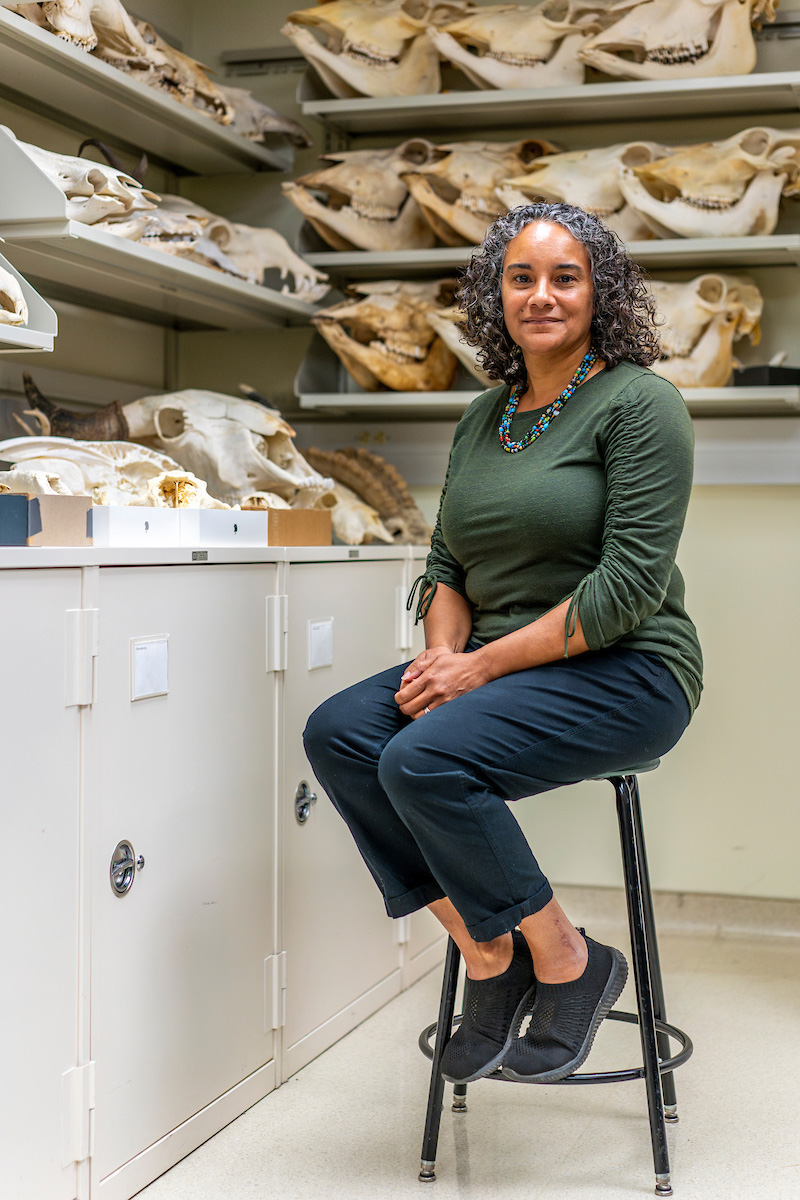
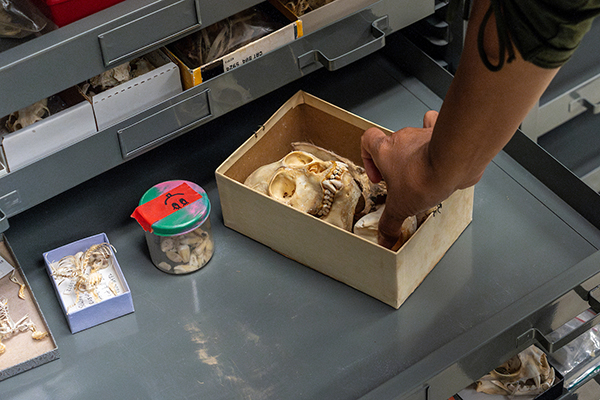

Investigating developmental delays through anatomical research
Delays transitioning infants from breast or bottle feeding to textured foods can lead to physiological and biomechanical feeding problems that can persist into school-age years. The NIH has awarded Susan Williams, Ph.D., more than $423,000 to evaluate rehabilitation strategies for children coping with this problem. Williams is an anatomy professor and associate dean of faculty at the Heritage College.
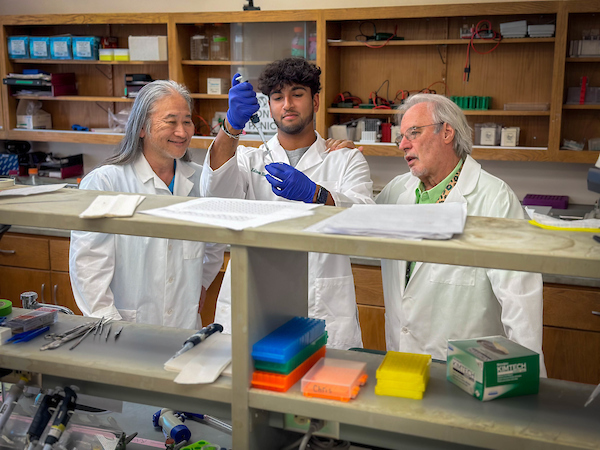

Working to improve health, increase people's lifespans
Combining therapies to improve health in aging adults and increase lifespan is the focus of an NIH-funded study with lead investigator John Kopchick, Ph.D., Goll-Ohio Eminent Scholar and professor of Molecular Biology. He is looking at several promising life-extending compounds in combination with growth hormone receptor antagonist because there is strong evidence suggesting that reducing the action of growth hormone is associated with slowed aging.
Co-investigators on the 10-year, $3.1 million study include Darlene Berryman, Ph.D., associate dean of research and innovation at the Heritage College, and Edward List, Ph.D., associate investigator with Ohio University’s Edison Biotechnology Institute.
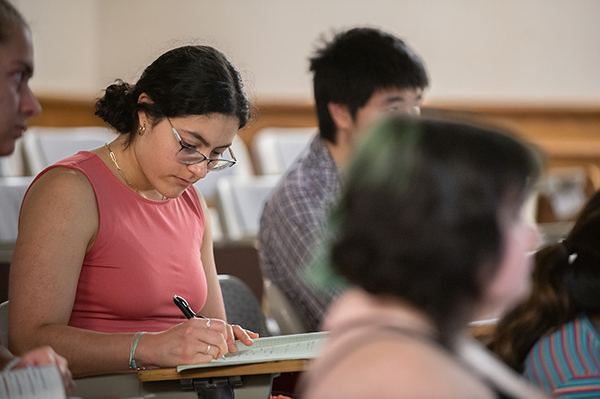
Mentoring the next generation of diabetes researchers
The NIH funded a 10-week research training program for undergraduates called the Diabetes Institute Summer Interprofessional Research Experience (DISIRE). In this program, students learn valuable research skills, are mentored by OHIO faculty who work in diabetes research, hear from clinicians, take part in online courses and create a capstone project that they can bring back to their respective universities and implement on those campuses.
The five-year NIH funding for the program totals more than $522,000 and was awarded to co-principal investigators John Kopchick, Ph.D., Goll-Ohio Eminent Scholar and professor of Molecular Biology; Craig Nunemaker, Ph.D., associate professor; Kevin Lee, Ph.D., associate professor; and Elizabeth Beverly, Ph.D., professor.

